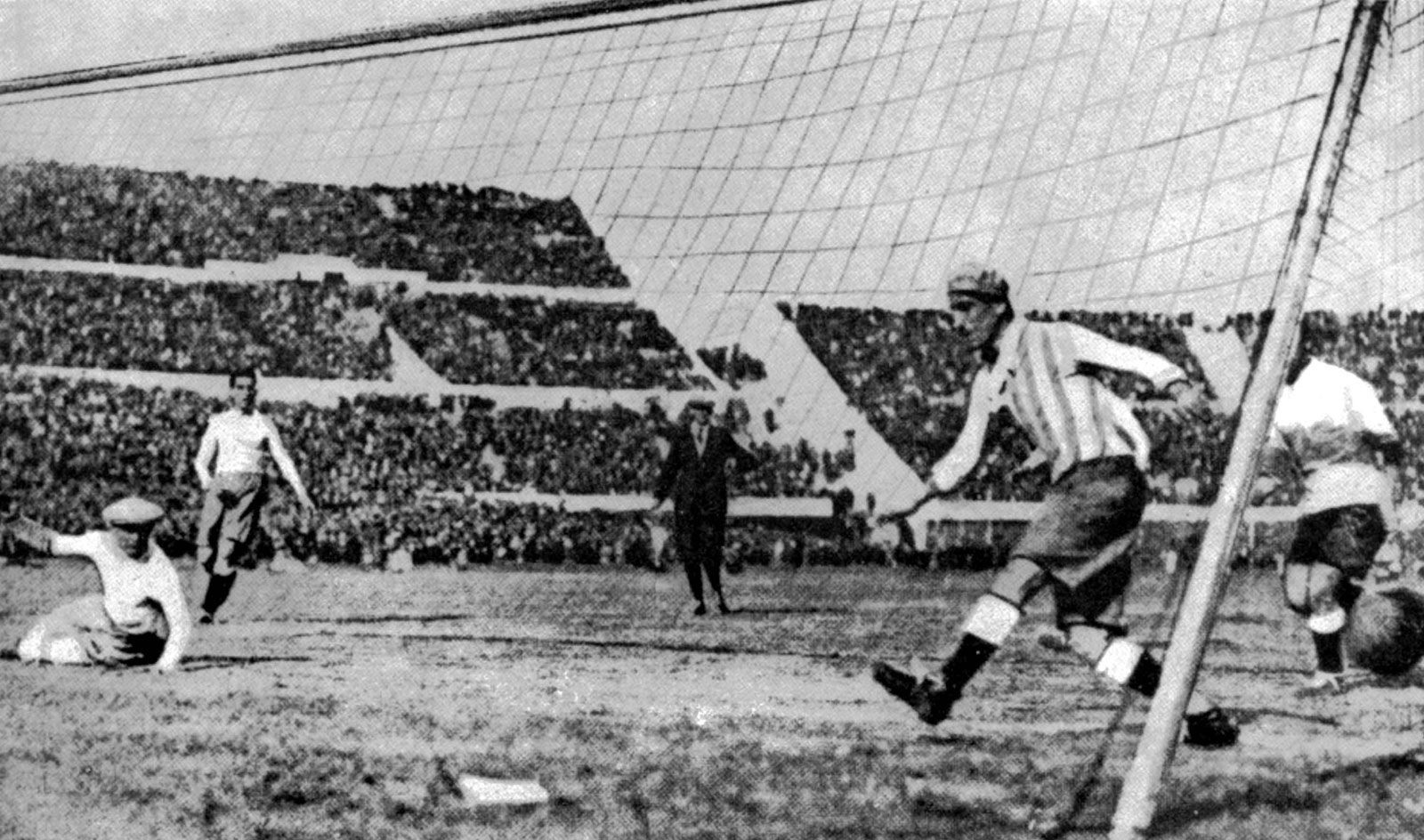Finding out who clinched the title of “Last Football World Cup Winner” and when? This article answers your question directly and provides insights into the captivating history of the FIFA World Cup. Discover the winning team and explore the tournament’s rich legacy with CAUHOI2025.UK.COM.
1. Who Was the Last Football World Cup Winner?
The last football (soccer) World Cup winner was Argentina, who won the tournament in 2022. The final match was held in Qatar on December 18, 2022, where Argentina defeated France in a thrilling penalty shootout after a 3-3 draw.
1.1. Significance of Argentina’s 2022 Victory
Argentina’s victory in the 2022 World Cup was particularly significant for several reasons:
- Ending a Long Wait: It marked Argentina’s first World Cup title since 1986, ending a 36-year drought for the nation.
- Lionel Messi’s Crowning Achievement: The win was widely seen as the culmination of Lionel Messi’s illustrious career, finally adding the elusive World Cup trophy to his collection.
- A Memorable Final: The final against France was one of the most exciting and dramatic in World Cup history, featuring stunning goals, controversial moments, and a nail-biting penalty shootout.
1.2. Argentina’s Road to Victory in the 2022 World Cup
Argentina’s journey to the 2022 World Cup title was not without its challenges. Here’s a brief overview of their performance in the tournament:
- Group Stage: Argentina started their campaign with a shocking 2-1 defeat to Saudi Arabia, but they recovered to win their remaining group matches against Mexico and Poland.
- Knockout Stage: In the round of 16, Argentina defeated Australia 2-1. They then faced a tough quarterfinal match against the Netherlands, which they won on penalties after a 2-2 draw. In the semi-final, Argentina defeated Croatia 3-0 to reach the final.
2. A Brief History of the FIFA World Cup
The FIFA World Cup is arguably the most prestigious and widely followed sporting event in the world. Held every four years, it brings together the best national teams from across the globe to compete for the coveted trophy.
2.1. Origins and Early Years
The first FIFA World Cup was held in Uruguay in 1930. The tournament was the brainchild of Jules Rimet, the then-president of FIFA, who sought to create a global competition for national football teams. Uruguay won the inaugural tournament, defeating Argentina in the final.
Uruguay scoring its first goal in the World Cup final against Argentina, in Montevideo, Uruguay, July 30, 1930.
The World Cup was interrupted by World War II, with no tournaments held in 1942 and 1946. The competition resumed in 1950, with Uruguay once again emerging victorious.
2.2. Dominant Nations and Memorable Moments
Throughout its history, the World Cup has been dominated by a few nations, most notably Brazil, Germany, Italy, and Argentina. These countries have consistently produced some of the world’s best players and have enjoyed considerable success in the tournament.
- Brazil: Brazil is the most successful nation in World Cup history, having won the tournament five times (1958, 1962, 1970, 1994, and 2002). They are known for their attacking style of play and have produced legendary players such as Pelé, Ronaldo, and Ronaldinho.
- Germany: Germany has won the World Cup four times (1954, 1974, 1990, and 2014). They are renowned for their tactical discipline and organizational skills.
- Italy: Italy has also won the World Cup four times (1934, 1938, 1982, and 2006). They are known for their defensive prowess and tactical flexibility.
- Argentina: With their 2022 victory, Argentina has now won the World Cup three times (1978, 1986, and 2022). They are famous for their passionate fans and have produced iconic players like Diego Maradona and Lionel Messi.
The World Cup has also been the stage for numerous memorable moments, including:
- Maradona’s “Hand of God” goal: In the 1986 quarterfinal against England, Diego Maradona scored a controversial goal with his hand, which he later described as the “Hand of God.”
- Zinedine Zidane’s headbutt: In the 2006 final against Italy, Zinedine Zidane, the French captain, was sent off for headbutting Marco Materazzi.
- Germany’s 7-1 victory over Brazil: In the 2014 semi-final, Germany stunned the host nation Brazil with a 7-1 thrashing.
2.3. The FIFA World Cup Trophy
The World Cup trophy has undergone some changes over the years. From 1930 to 1970, the trophy was known as the Jules Rimet Trophy, named after the FIFA president who initiated the tournament. Brazil was permanently awarded the Jules Rimet Trophy after winning their third World Cup title in 1970.
Since 1974, the World Cup trophy has been the FIFA World Cup Trophy. It is made of 18-carat gold and depicts two human figures holding up the Earth. The trophy is awarded to the winning team, who get to keep it until the next tournament.
3. The Economic and Social Impact of the World Cup
The FIFA World Cup has a significant economic and social impact on the host nation and the world at large.
3.1. Economic Benefits
Hosting the World Cup can bring significant economic benefits to a country, including:
- Increased tourism: The World Cup attracts millions of tourists, who spend money on accommodation, food, transportation, and souvenirs.
- Infrastructure development: Hosting the World Cup often requires significant investment in infrastructure, such as stadiums, airports, and roads.
- Job creation: The World Cup creates jobs in various sectors, including construction, hospitality, and security.
- Increased trade and investment: Hosting the World Cup can boost a country’s reputation and attract foreign investment.
However, it’s also important to note that hosting the World Cup can also have negative economic consequences, such as:
- High costs: Hosting the World Cup can be very expensive, and the costs can outweigh the benefits if not managed carefully.
- White elephants: Some of the infrastructure built for the World Cup may become underutilized after the tournament, becoming “white elephants.”
3.2. Social Impact
The World Cup also has a significant social impact, including:
- National pride and unity: The World Cup can bring a sense of national pride and unity to a country, as people come together to support their team.
- Cultural exchange: The World Cup brings together people from different cultures and backgrounds, promoting cultural exchange and understanding.
- Inspiration for young people: The World Cup can inspire young people to take up football and pursue their dreams.
- Social issues: The World Cup can also highlight social issues, such as racism, discrimination, and inequality.
4. What to Expect in the Next World Cup
The next FIFA World Cup will be held in 2026 in the United States, Canada, and Mexico. This will be the first World Cup to feature 48 teams, an expansion from the current 32-team format.
4.1. Key Changes for the 2026 World Cup
The expansion to 48 teams will have several implications for the tournament, including:
- More matches: The tournament will feature more matches, providing more opportunities for fans to watch their favorite teams.
- More host cities: The tournament will be held in multiple cities across the United States, Canada, and Mexico, spreading the economic benefits and showcasing different regions.
- Increased competition: The expansion will give more countries the opportunity to participate in the World Cup, increasing competition and diversity.
4.2. Potential Contenders for the 2026 World Cup
It’s difficult to predict who will be the favorites for the 2026 World Cup, but some of the teams to watch out for include:
- Argentina: As the defending champions, Argentina will be looking to defend their title.
- France: France has a young and talented squad and will be hoping to go one better than their 2022 performance.
- Brazil: Brazil is always a contender, and they will be determined to bounce back from their disappointing performance in 2022.
- England: England has been improving in recent years and will be hoping to make a deep run in the tournament.
- United States: As one of the co-hosts, the United States will be hoping to make a strong impression on home soil.
5. Interesting Facts About the FIFA World Cup
Here are some interesting facts about the FIFA World Cup:
- The World Cup trophy is made of 18-carat gold and weighs 6.1 kilograms (13.4 pounds).
- The oldest player to ever play in a World Cup is Roger Milla, who was 42 years old when he played for Cameroon in 1994.
- The youngest player to ever play in a World Cup is Norman Whiteside, who was 17 years old when he played for Northern Ireland in 1982.
- The highest-scoring match in World Cup history was Austria’s 7-5 victory over Switzerland in 1954.
6. The Future of the FIFA World Cup
The FIFA World Cup is likely to continue to be a major global event for many years to come. FIFA is constantly looking for ways to improve the tournament and make it more exciting for fans.
6.1. Potential Changes and Innovations
Some potential changes and innovations that could be introduced in the future include:
- Technological advancements: Technology is playing an increasingly important role in football, and we could see more technological advancements being used in the World Cup, such as goal-line technology and video assistant referees (VAR).
- New formats: FIFA could experiment with new formats for the tournament, such as a group stage followed by a knockout stage with seeded teams.
- Sustainability initiatives: FIFA is committed to making the World Cup more sustainable, and we could see more initiatives being introduced to reduce the environmental impact of the tournament.
6.2. The Enduring Appeal of the World Cup
Despite the challenges and controversies that have plagued the World Cup over the years, the tournament continues to captivate audiences around the world. The World Cup is more than just a football tournament; it’s a celebration of sport, culture, and national pride.
The FIFA World Cup remains a captivating and influential event, uniting nations through the love of football. From Argentina’s recent triumph to the anticipation of the 2026 tournament in North America, the World Cup continues to inspire and entertain.
FAQ About the Last Football World Cup Winner
Here are some frequently asked questions about the last football world cup winner:
Q1: Who won the last FIFA World Cup?
A1: Argentina won the last FIFA World Cup in 2022.
Q2: When was the last FIFA World Cup held?
A2: The last FIFA World Cup was held in 2022.
Q3: Where was the last FIFA World Cup held?
A3: The last FIFA World Cup was held in Qatar.
Q4: Who did Argentina beat in the final of the 2022 World Cup?
A4: Argentina beat France in the final of the 2022 World Cup.
Q5: How many times has Argentina won the World Cup?
A5: Argentina has won the World Cup three times (1978, 1986, and 2022).
Q6: Who is Lionel Messi?
A6: Lionel Messi is an Argentinian professional footballer who captained Argentina to victory in the 2022 World Cup.
Q7: When will the next FIFA World Cup be held?
A7: The next FIFA World Cup will be held in 2026.
Q8: Where will the 2026 FIFA World Cup be held?
A8: The 2026 FIFA World Cup will be held in the United States, Canada, and Mexico.
Q9: How many teams will participate in the 2026 FIFA World Cup?
A9: 48 teams will participate in the 2026 FIFA World Cup.
Q10: Which country has won the most FIFA World Cup titles?
A10: Brazil has won the most FIFA World Cup titles with five wins.
In conclusion, Argentina is the last football world cup winner, having achieved victory in 2022. The World Cup continues to be a source of excitement, national pride, and global unity.
Do you have more questions about the World Cup, soccer, or other topics? Visit CauHoi2025.UK.COM today for reliable answers and in-depth information. We are committed to providing accurate and easy-to-understand explanations on a wide range of subjects.


